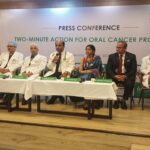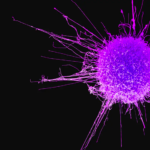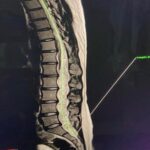- “A rare knee condition – ‘hereditary multiple exostosis’ successfully treated with Total Knee Replacement at Fortis Hospital Shalimar Bagh
- A condition in which multiple benign bone tumors, called osteochondromas are present, causing pain in the joints, deformities and decreased mobility”
healthy soch
New Delhi, November 26, 2019:
Doctors at Fortis Hospital Shalimar Bagh successfully treated a 69-year-old patient suffering from a rare knee condition, ‘hereditary multiple exostosis’. A condition in which multiple benign bone tumors called osteochondromas develop at the end of flat bones such as the hip and shoulder blade, osteochondromas cause immense pain in the joints, deformities and decrease mobility. A team of doctors was led by Dr. (Prof) Amite Pankaj Agarwal, Director– Orthopedics’ and Joint, Fortis Hospital, Shalimar Bagh, performed the surgery.
On presentation, the patient, Mr. Sudharshan Kumar Jain, was suffering from severe and debilitating pain in both his knee joints. Multiple tumors had developed on his bones causing swelling and joint deformities. Although he had these swellings from childhood, he was experiencing immense pain in his knee joints over the past few years. The pain became progressive and he was facing limitations in his day to day life. In addition, he had severe deformities of both his legs due to the pre-existing tumors confounded by the development of knee arthritis. He could barely walk a few meters and needed painkillers on routine basis. He had sought treatment at many places but came to FHSB for surgery.
Speaking about the case, Dr Amite Pankaj Agarwal, Director & Unit Head – Orthopedics’ and Joint, Fortis Hospital, Shalimar Bagh. said, “Age related degeneration of knees is a common problem leading to decreased mobility in older age groups. To overcome this, an increasing number of people are opting for knee replacement. This is a technically challenging surgery that can sometimes become even more complicated when the patient has an underlying condition such as ‘hereditary multiple exostosis’. In this case the patient had multiple lesions around the knee joints and his knees were deformed.
This made knee replacement surgery challenging and difficult. However, after a thorough evaluation, we decided to perform the surgery. It took 2 hours to complete this surgery and we used latest gadgets and techniques to overcome the difficulties encountered during surgery in this complex scenario. The patient showed immediate signs of recovery and began to walk within 6 hours of surgery.”
Mr. Sudharshan Kumar Jain said, “I am extremely happy that my condition has improved. I was in severe pain and was unable to walk. I have been suffering from this disease since I was 63 years and my daily activities have been restricted. However, Dr. Amite Pankaj and his team have now given me a renewed vigor for life at 69. I am grateful to the entire team at Fortis Hospital, Shalimar Bagh for their support.”
Mr. Mahipal Singh Bhanot, Facility Director, Fortis Hospital Shalimar Bagh said, “Our endeavor is to always provide the best clinical care, keeping in mind a 100% chance of recovery for every single patient. The clinicians at Fortis Hospital Shalimar Bagh are known for examining each case carefully and suggesting the right treatment approach. Our team will continue to work diligently as per global clinical protocols and leverage cutting edge technology for best possible results.”
Hereditary multiple exostosis is a genetic disorder. It can also be caused by a genetic mutation. The gene for hereditary multiple exostosis produces a protein that affects bone growth and development, causing bony growths called exostoses. Hereditary multiple exostosis is usually diagnosed around age 3 or 4, when the first exostosis occurs. The exostoses become more prominent as the child grows but stop developing once a child reaches adulthood.
healthysoch







